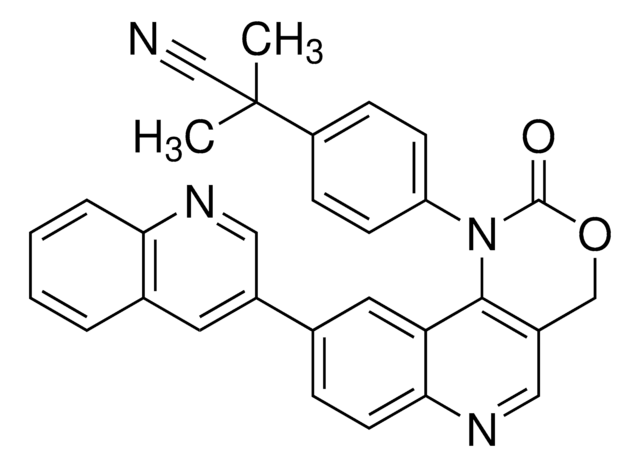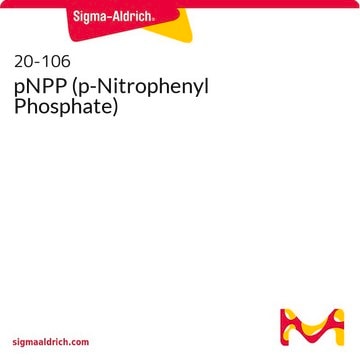All Photos(1)
About This Item
Empirical Formula (Hill Notation):
C20H29N3O2
CAS Number:
Molecular Weight:
343.46
EC Number:
MDL number:
UNSPSC Code:
41116107
PubChem Substance ID:
Recommended Products
grade
analytical standard
technique(s)
HPLC: suitable
gas chromatography (GC): suitable
application(s)
cleaning products
cosmetics
food and beverages
forensics and toxicology
personal care
pharmaceutical (small molecule)
veterinary
format
neat
SMILES string
CCCCOc1cc(C(=O)NCCN(CC)CC)c2ccccc2n1
Looking for similar products? Visit Product Comparison Guide
Application
Refer to the product′s Certificate of Analysis for more information on a suitable instrument technique. Contact Technical Service for further support.
Biochem/physiol Actions
Potent, long-acting local anesthetic
Hazard Statements
Precautionary Statements
Hazard Classifications
Aquatic Chronic 2
Storage Class Code
11 - Combustible Solids
WGK
WGK 3
Flash Point(F)
Not applicable
Flash Point(C)
Not applicable
Personal Protective Equipment
dust mask type N95 (US), Eyeshields, Gloves
Choose from one of the most recent versions:
Already Own This Product?
Find documentation for the products that you have recently purchased in the Document Library.
Changes in mitochondrial surface charge mediate recruitment of signaling molecules during apoptosis.
Bryan Heit et al.
American journal of physiology. Cell physiology, 300(1), C33-C41 (2010-10-12)
Electrostatic interactions with negative lipids contribute to the subcellular localization of polycationic proteins. In situ measurements using cytosolic probes of surface charge indicate that normal mitochondria are not noticeably electronegative. However, during apoptosis mitochondria accrue negative charge and acquire the
Ana Peropadre et al.
Chemical research in toxicology, 24(2), 185-192 (2011-01-26)
A wide range of cationic amphiphilic drugs (CADs) from different therapeutic areas are known to cause phospholipidosis both in vivo and in vitro. Although the relevance of this storage disorder for human health remains uncertain, CADs have been repeatedly associated
V Arizza et al.
Fish & shellfish immunology, 30(4-5), 1014-1023 (2011-02-04)
Hemocytes from the ascidian Ciona intestinalis exert in vitro Ca²+-dependent cytotoxic activity toward mammalian erythrocytes and K562 cells. To examine the lytic mechanism, hemocyte populations were separated (B1-B6 bands) through a Percoll discontinuous density gradient, the hemocyte cytotoxic activity (HCA)
W Christopher Risher et al.
PloS one, 6(7), e22351-e22351 (2011-07-27)
Spreading depolarizations that occur in patients with malignant stroke, subarachnoid/intracranial hemorrhage, and traumatic brain injury are known to facilitate neuronal damage in metabolically compromised brain tissue. The dramatic failure of brain ion homeostasis caused by propagating spreading depolarizations results in
Heather A Douglas et al.
Journal of neurophysiology, 105(4), 1482-1494 (2011-01-29)
Recurring waves of peri-infarct depolarizations (PIDs) propagate across gray matter in the hours and days following stroke, expanding the primary site of injury. Ischemic depolarization (termed anoxic depolarization or AD in live brain slices) is PID-like but immediately arises in
Our team of scientists has experience in all areas of research including Life Science, Material Science, Chemical Synthesis, Chromatography, Analytical and many others.
Contact Technical Service








